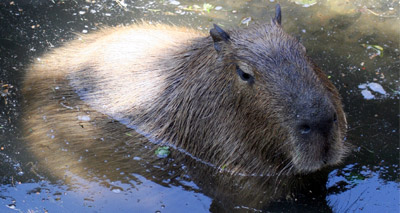National Trust Scotland backs beaver reintroduction

"Beavers are a native species to Scotland and having carefully weighted up the pros and cons, the Trust believes that they should be resident here."
Beavers should be reintroduced to Scotland, the National Trust for Scotland (NTS) has announced.
In a policy statement, the conservation charity said that the reintroduction of the Eurasian beaver would see a key element of native fauna returned to its natural ecosystem and support the conservation of existing beaver populations in Scotland.
The statement follows an assessment of work and findings from the recent Knapdale Scottish Beaver Trial and the Tayside Beaver Study Group.
Scottish ministers will decide later this year on allowing beavers to remain in Scotland and if wider reintroductions will take place.
Speaking to BBC News, nature advisor Lindsay Mackinlay said: "Beavers are a native species to Scotland and having carefully weighted up the pros and cons, the Trust believes that they should be resident here.
"We would like to see the existing beavers in Argyll and Tayside managed to permit their natural expansion from these core areas and hope that other licensed reintroductions in appropriate areas will augment the existing populations."
Wild beavers have been extinct in the UK for over 400 years. The Scottish Beaver Trial was the first official project of its kind in Britain and a groundbreaking five year study to explore how beavers can enhance and restore natural environments.
Beavers were released into Knapdale Forest in Argyll in 2009 and have since been busy settling into their new home.



 The WSAVA has invited veterinary professionals to a webinar on responsible antibiotic usage in dentistry.
The WSAVA has invited veterinary professionals to a webinar on responsible antibiotic usage in dentistry.